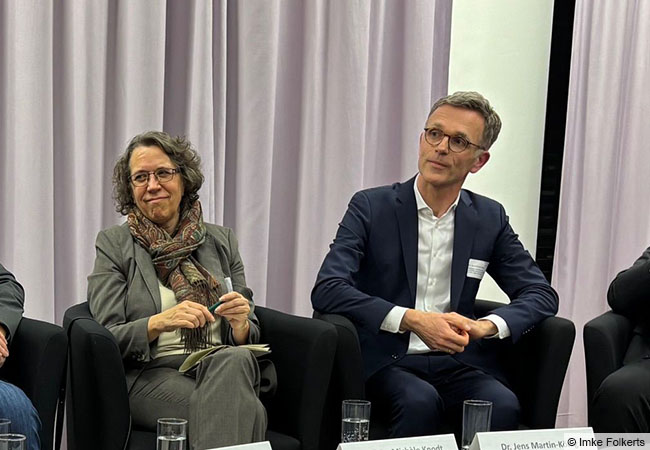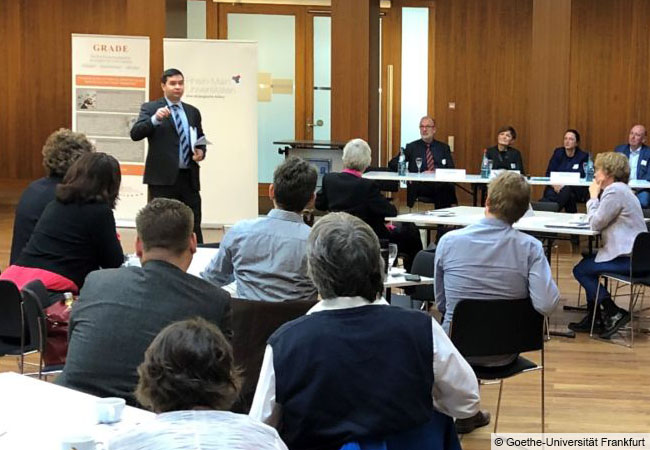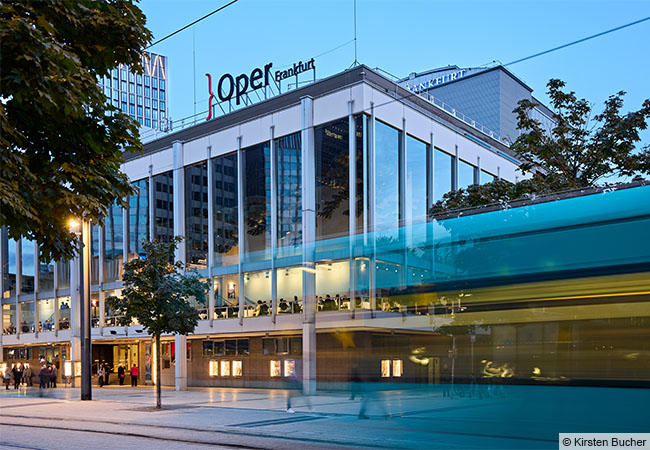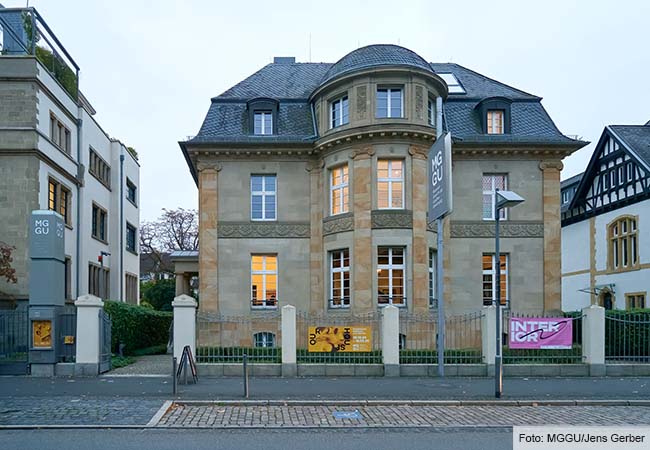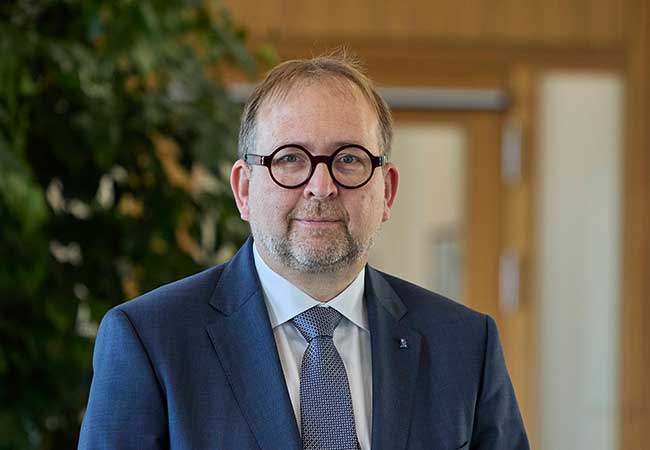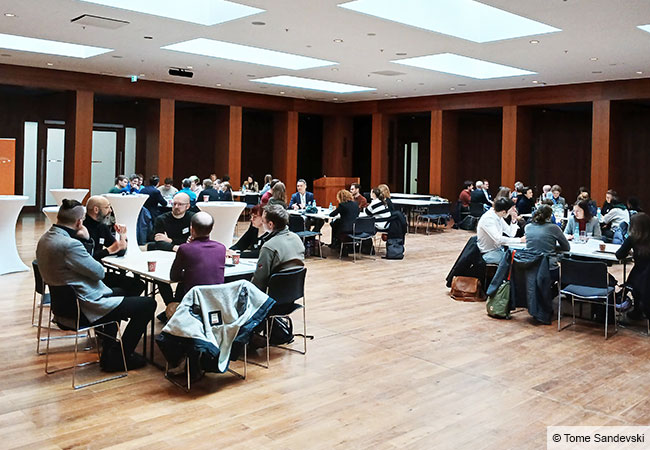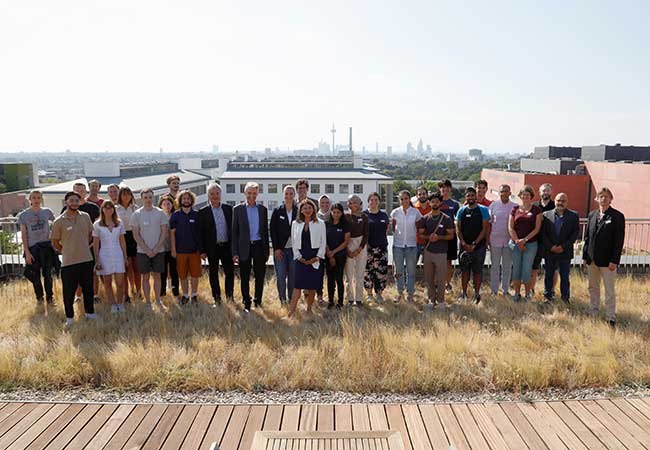
Goethe University Frankfurt is currently hosting the first “EXPLORE” summer school, giving international students the opportunity to work on real astrophysical data.
They had to wait several months until their first “real” meeting could take place. Now they finally get to meet in person – 13 students from Frankfurt’s partner city Toronto and 22 of their fellow students at Goethe University Frankfurt are joining a summer school on astrophysics. “It is very nice to finally have everyone come together. The students put so much effort in and came up with great results”, says Prof. Laura Sagunski from the Institute for Theoretical Physics, who realised the project together with Prof. Jürgen Schaffner-Bielich and their colleagues at York University in Canada.
Already during the last semester, the young people teamed up in self-organised groups to work on real physical data and research questions about Dark Matter. The innovative international teaching project called “EXPLORE: EXPeriential Learning Opportunity through Research and Exchange” enables them to learn about physics hands-on while also experiencing modern international research collaborations. Sagunski emphasizes: “By having them work together, we also want to strengthen the students’ competences in intercultural communication and their ability to work in heterogeneous teams.”
On Monday, the first EXPLORE summer school was opened at the Frankfurt Institute for Advanced Studies on Campus Riedberg. Frankfurt’s mayor Dr. Nargess Eskandari-Grünberg, who recently visited Toronto herself, welcomed the students warmly: “It is of special importance to me that Frankfurt will be further strengthened as a research location. In times where scientific findings are being questioned, it is particularly important that researchers communicate beyond borders. That young people from Toronto and Frankfurt conduct research on such an exciting topic together makes me especially happy.”
Next, Prof. Luciano Rezzolla gave a keynote on the first images of Black Holes. “It’s great to see how motivated the young generation of scientists is,” he says. “Therefore, I am delighted to be able to ideologically and financially support this project through the research cluster ELEMENTS.”
A week full of interesting workshops and talks awaits the students, accompanied by cultural and sportive activities: They will take a stand up paddling tour on the river Main as well as explore Frankfurt on a guided tour.
https://astro.uni-frankfurt.de/innovative-teaching/
Autor: Phyllis Mania


